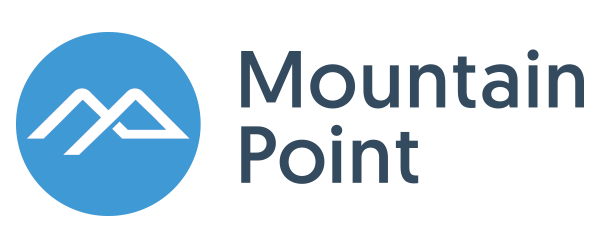7-minute video
You know the saying… “if you don’t know where you’re going, every road will take you there.” The same is true for digital transformation initiatives. And you can bet the journey will be expensive.
To ensure a return on your digital investments, start with the end in mind. What do you want to accomplish? What’s the point of this undertaking?
In this short video, we outline how manufacturers can develop a vision for success and identify KPIs to keep their digital transformation projects on track.
This episode is part of our 12-part mini-series during which we’ll talk through each of our 10 Best Practices for Digital Transformation.
Have a question you’d like answered?
Let us know in the comments below, and we’ll talk through it on a future episode!
What's the ROI? Just six months after implementing their digital transformation efforts, luxury textile manufacturer Matouk saw a 233% return on their investments.
Transcript: Digital Transformation: What’s the Point?
Jessica: Hi, and thanks for joining us for another Q&A Friday, a regular series where we chat about issues facing manufacturing companies and the new world of Industry 4.0. I am Jessica Vodden, a team member here at Mountain Point, and I'm joined by Andrew Rieser, our president and co-founder. Hey, Andrew!
Andrew: Hey Jess, how are you?
Jessica: I am doing great. Today we're gonna continue a conversation that we've been having over the past few weeks, where we're breaking down step by step our 10 point guide to managing digital transformation projects. Today we wanna talk about the importance of really defining success from the get-go, and establishing KPIs and understanding what you wanna accomplish as a result of this initiative. Andrew, tell me a little bit about why that's important, and how you can do that without putting artificial parameters, or arbitrary expectations on the project that might be stifling later on?
Andrew: Yeah, I think that's a great question. I think that it's hard for most organizations to truly define how to measure back to these KPIs that they're establishing for themselves, because, digital transformation and what we've been talking about, it's kind of all encompassing. There's organizational KPIs that can be set, so think of that like revenue growth, a reduction in expenditures per year, a growth in the number of quotes that you're generating, so you have these big overarching things that you like to measure as an organization, but then those need to also translate down into the different divisions and organizations. I think defining success metrics and the KPIs that organization needs to be measuring often is talked about, but I think that the strategy is to translate that down across the organization... A lot of these companies that we work with are missing the boat on it, to where they're either getting super specific, or the KPIs that they're putting in place are less around the organization, and more around the way that they're trying to influence the behavioral changes of the folks that have responsibilities to roll up under these KPIs, if that makes sense.
See also: 9 KPIs for Modern Manufacturing
Jessica: Yeah, it absolutely does. In one of my favorite quotes, it goes something like, be steadfast in your goals, but flexible in your methods. When we talk about an agile approach, which we often advocate for in terms of managing change, what does that look like? Making sure that you're achieving what you set out to do, but being agile enough and flexible enough to roll with emerging situations, or new information.
Andrew: I've been thinking about this topic a lot recently, and having two young daughters in school, and trying to help them with their homework. My oldest daughter is now starting to get into more math and science related classes. It's funny thinking about the old scientific based methods that you do, right? Where it's all right, let's create a hypothesis for ourselves. How do we think that this experiment is going to--. What do we anticipate the results being? Then executing on that experiment, and seeing if your hypothesis is true or not, then evolving off of that and looking into the lessons learned. It's been pretty intriguing going through this drill with my fourth grader and thinking about how that same kind of agile and scientific method in approach, also applies in the business world.
Jessica: Yeah, it's definitely a continuous learning process, and it's something that we've talked about in other conversations, where you learn and adjust, learn and adjust. Tell me a little bit about the importance of--. A lot of companies, they know where they wanna go, but they don't necessarily know where they are, so tell me a little bit about how to establish that baseline for measurement?
Andrew: I think the key is process and consistency. If you look at any major sporting team, the ultimate vision and the goal, if you take football as an example, is "We wanna win the Superbowl", but in order to do that we've gotta win the series of games leading up to that, then we've gotta win the conference championship, and then we've gotta ultimately win out into the Superbowl. In the beginning the mindset is that achievable goal of where they wanna be come the end of the season, and ultimately winning the championship, but if you listen to the interviews, and listen to the coaches and the players, it's all about following the process in the days leading up to that next game. It's never talk about what's gonna happen three to six months from now, it's all talk about what they could do to improve and do differently to achieve better outcomes at that next practice, or at that next upcoming game.
Jessica: Yep, and I think from my own experience in working with Mountain Point on the marketing side, one of our first KPIs was being able to establish where we are, and knowing how far we have to go. That in and of itself could be an outcome. Just having that insight, because so often with legacy systems, or legacy processes, one of the reasons that you wanna move away from them is because of the lack of transparency, or the lack of insight available. Step one might be just saying, "I want to know what our sales conversion rate is", and that can be a good one in and of itself. Any thoughts on setting that as a benchmark?
Andrew: I think that's 100% accurate. It's more and more common that that is the low hanging fruit, and the first step that we're taking with some of these organizations, is measuring what's currently in place. It's shocking how many companies that we talk to that don't have clear insights or analysis of their data to be able to say how many quotes they generate in a given year, a given month, a given week, and the win/loss rate of those quotes, and the reason behind a win or a loss. Just something as simple as that, really diving in and looking at that data and creating the baseline is absolutely an important and necessary first step. You gotta be able to measure your current processes and data before you can improve on them.
Jessica: Absolutely. Well, short and sweet this week! I think we've hit on a lot of the main points regarding this. we're gonna talk about the importance of establishing accountability and setting expectations for change, which of course is crucial to being able to manage those metrics. So look forward to that. For those of you out there listening, if you have a question that you'd like us to answer, a topic you want us to address, please let us know. You can hit us up on social media, via email, call us, we're always eager to hear from you. Thank you so much, and thanks again, Andrew!
Andrew: Thank you, Jess.
What's the ROI? Just six months after implementing their digital transformation efforts, luxury textile manufacturer Matouk saw a 233% return on their investments.








